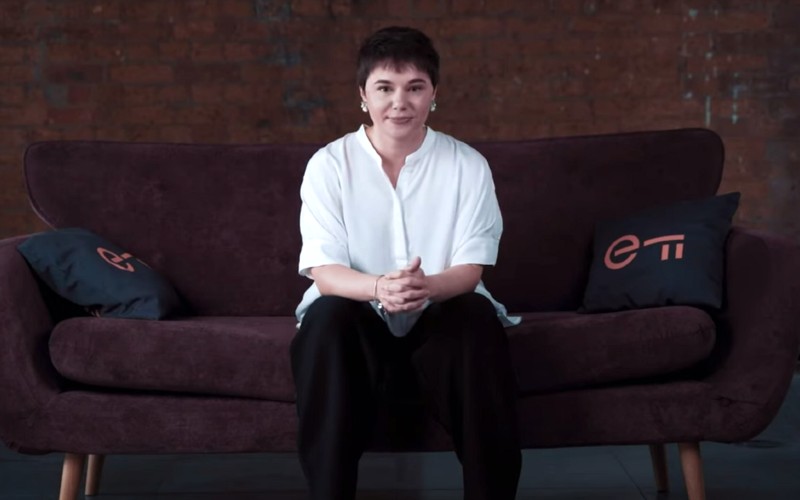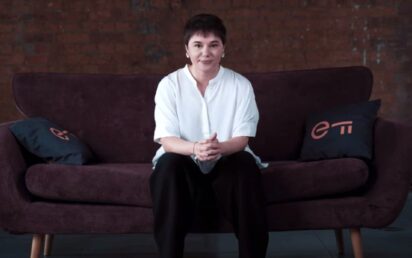People should not be stigmatised as a result of their mental health, according to the founder of a ground-breaking platform looking to transform how conditions are treated.
Emilia Molimpakis is a neuroscientist with a PhD and years of postdoctoral research at UCL in linguistics, neuroscience and psychology behind her.
She founded Thymia with Stefano Goria after meeting the CTO at talent investment programme Entrepreneur First. Using language as a biomarker for cognition – with data collected via videogames – Thymia helps doctors to quickly, accurately and objectively assess and monitor mental health conditions such as depression.
With today being Blue Monday, the spotlight is back on mental health. However there are many moveable factors that can affect a person’s health at any point of the year.
“Every person is unique in how their brain works – how it’s wired,” she tells BusinessCloud. “Unfortunately, mental health conditions such as depression and anxiety are also super complex.
“In any given individual, their genetic makeup and predisposition to these things may be triggered by different events.
“Having a mental health condition doesn’t mean that you’re broken or that you should be stigmatised in any way, shape, or form; it’s just as real and as objectively measurable as a physical health condition.
“We don’t stigmatise people for having been born with diabetes, and in the same way we shouldn’t stigmatise people for having a mental health condition.”
Clinical inertia
Molimpakis describes the phenomenon of ‘clinical inertia’ as a fundamental problem in treatment of cognitive conditions.
“Let’s say the clinician chooses CBT therapy or some form of antidepressant or anxiolytic medication,” she explains. “We create baseline data for the patient before treatment begins and log it on the Thymia platform.
“We can then monitor this alongside the clinician to see if there are changes: if there aren’t any changes, the clinician can consider changing the treatment [with confidence].
“There’s this whole problem, particularly in psychiatry, called ‘clinical inertia’: because medications can have quite strong side effects and take up to two months, in some cases, to kick in, clinicians simply refuse to change the drugs – even when there are signs that they’re not working.
“There are so many issues there that they just don’t want to change them. We’re hoping to help them make that decision to change when it’s necessary.”
She adds: “Continuous monitoring and support is the best thing we can offer people with any health condition – and that’s something that’s really lacking right now with psychology and psychiatry.
“There are gaps between sessions where all sorts of things happen to cause fluctuations – you can feel well one day and then the next day suddenly be really low. These aren’t captured now in any way by the clinician.
“So you’re just relying on the person being able to remember these when they go in… it’s remarkable, really, that they managed to treat anyone with these tools.”
Videogames
The data is created via a set of activities – such as videogames – designed to elicit and gather voice and video data. For example, the person may be tasked with tapping bumblebees as they appear on screen.
“These target behavioural information: we look at reaction times to visual stimuli, rapid eye movements, errors where people are looking on the screen. We use these to look at specific cognitive functions that are affected in depression.
“People with depression, because of the way their brain works, they show a different pattern.”
Molimpakis’s passion for helping people comes from a very personal place.
“I founded Thymia because my best friend at university developed depression and I firsthand watched her go through the NHS system. Through no fault of the NHS, they have very few resources and clinicians don’t have the tools they need to assess people objectively,” she explains.
“I saw her deteriorate very rapidly with nobody doing anything about it until it was too late – and she ended up trying to kill herself. She’s been institutionalised for a while now.
“It’s so common and it’s just very sad that there isn’t something out there to help clinicians. Every day I think about that: if Thymia had existed, then maybe she wouldn’t have gotten to that point, or somebody would have been able to do something sooner.
“That is what keeps you going, day in and day out.”
The Spitalfields startup, which has 10 staff, closed a pre-seed round of investment in April 2021 and will scale this year. It is rolling out its first clinical contracts this month.
“We’ve signed large contracts with large mental health clinics in the UK and Greece. We’re signing now with Spain and Italy and we’re also expanding to the States soon,” she reveals.
“We’ll serve more than 80,000 active monthly users in Q1 and the pipeline is looking like we’ll have roughly 250,000-300,000 users by mid-2022.”


